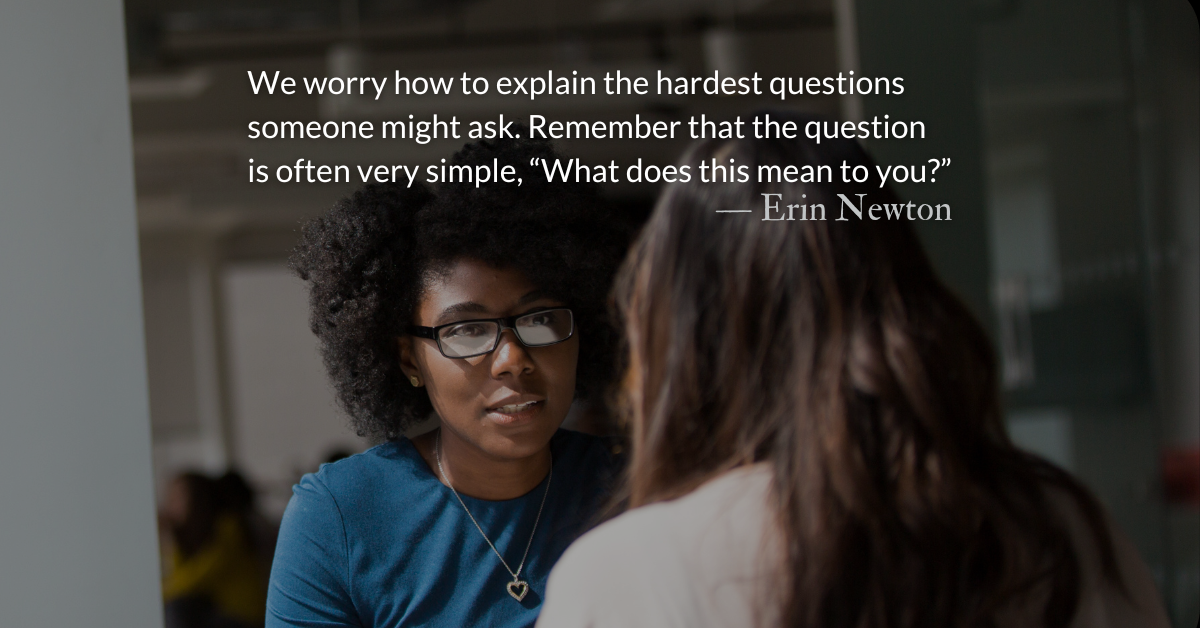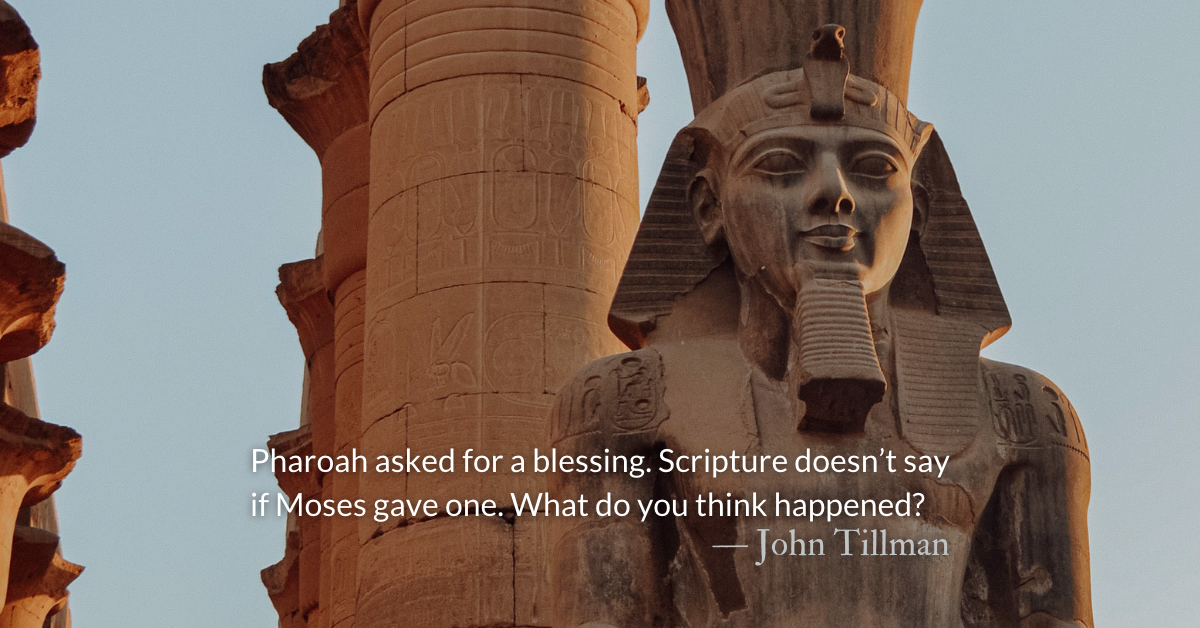Scripture Focus: Exodus 12:26-27
26 And when your children ask you, ‘What does this ceremony mean to you?’ 27 then tell them, ‘It is the Passover sacrifice to the Lord, who passed over the houses of the Israelites in Egypt and spared our homes when he struck down the Egyptians.’” Then the people bowed down and worshiped.
Reflection: When They Ask
By Erin Newton
“Preach the Gospel. If necessary, use words.” This anonymous quote suggests the gospel can be told through actions. It’s true—faith needs to have actions. But it fails to answer Paul’s rhetorical question, “how can they hear without someone preaching to them?”
As the Hebrews prepared for the final plague, God instructed them to perform the Passover ceremony. This was an unprecedented ceremony and one that would be repeated annually. With each new year, the people would explain to the community why they celebrated. No new generation could say, “I didn’t know.”
You can always tell what is important to people by what they talk about the most. We know which friends are sports fanatics, bookworms, or cinema aficionados. If we love it, we ramble on about it. When God calls the Hebrews to teach the next generation, he’s asking for the Passover to fill a place of importance in their hearts.
It is not a laborious call to cover the curriculum. With devoted hearts, the people would celebrate, and the kids would be watching. “What does this mean to you, mom? Why are you doing that, dad? Where is the lamb we had last week, uncle?”
Passing on knowledge is commanded by God. We are called to teach to our children, younger believers, and those new in the faith. Sometimes it is handled like a theological checklist. Or something we pass off to the church staff. The burden seems daunting.
Let’s look at the passage again. The parents would be practicing their faith. The kids would be noticing. Passover would not be a mere checklist of annual traditions; the people would celebrate out of faith and love.
We are fortunate to have myriads of resources at our fingertips. There are videos and books and programs designed to teach biblical truths to people with minimal religious backgrounds. Some are created to hold the attention of small children and others are created to spur deep thinking in new believers. For our core beliefs, we usually don’t need additional resources. The truths are too important to us.
We worry how to explain the hardest questions someone might ask. Remember that the question is often very simple, “What does this mean to you?” No need to be eloquent. Speak from the heart. Let the truth be filled with your experience and emotions.
I imagine their answers, “We were terrified that night, but God saved us…”
Divine Hours Prayer: The Refrain for the Morning Lessons
Protect my life and deliver me; let me not be put to shame, for I have trusted in you. — Psalm 25.19
– From The Divine Hours: Prayers for Springtime by Phyllis Tickle.
Today’s Readings
Exodus 12.22-51 (Listen 7:31)
Matthew 23 (Listen 4:53)
Read more about Complaint to Commission
The disciples to lead the next generation of the church may be those we have yet to reach.
Read The Bible With Us
Join our Bible reading plan. Build Bible literacy, a vibrant faith, and cultural insight at a sustainable, two-year pace.
https://mailchi.mp/theparkforum/m-f-daily-email-devotional



